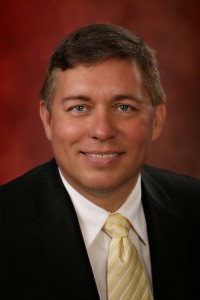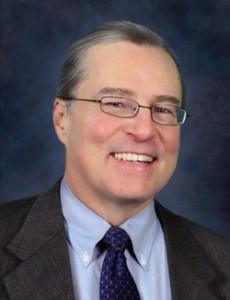by Collin Reischman
Richard McIntosh and Franc Flotron of Flotron & McIntosh LLC have a yin-and-yang kind of thing going on. Flotron is a former republican Senator and  representative and McIntosh hails from Senate appropriations under Roger Wilson and Nixon’s Attorney General office.
representative and McIntosh hails from Senate appropriations under Roger Wilson and Nixon’s Attorney General office.
Flotron’s hair is long. McIntosh keeps his short and tight. Flotron is a strategic thinker, a big ideas man. McIntosh keeps the trains running and the lights on.
At least, that’s the relationship they convey, two of the most recognizable and effective lobbyists in the state, Flotron and McIntosh freely admit their differences, but see not trouble in using them to their advantage.
“Franc is a brilliant strategist, one of the best,” McIntosh told The Missouri Times. “He’s got big ideas. If Franc is the guy saying ‘let’s fly a spaceship to the next star system’ then I’m the guy saying ‘Ok, but who’s building the faster-than-light engine?’”
McIntosh emphasized that they both consider themselves businessmen first and lobbyists second. Flotron called their business, located in a refurbished home on Capitol Avenue, “The Senate Exile,” and “The Home for Wayward Senators.” Flotron is the first of four former state senators to take positions at Flotron &McIntosh.
“Bringing in staff that are former Capitol employees is completely intentional,” Flotron said. “It’s really difficult for folks who haven’t been around each other very long to put together those really complex pieces of legislation, experience is invaluable in this process.”
 Flotron said term limits handcuffed legislator’s abilities to pass “the big, impressive bills,” of the past, and lobbyists with experience, as legislators, were a natural byproduct of the term limits.
Flotron said term limits handcuffed legislator’s abilities to pass “the big, impressive bills,” of the past, and lobbyists with experience, as legislators, were a natural byproduct of the term limits.
“The legislature is clearly more volatile now than in my time,” Flotron said. “That’s not a result of the people in it, it’s not their fault at all, they just don’t have the time to figure out the game and learn the tricks of the trade, and it’s a different world.”
Flotron and McIntosh both said they thought they filled that void well, bringing decades of combined experience, both as policy wonks and as legislators. McIntosh is the metaphorical Chief of Staff to Flortron’s Politician, McIntosh said. Flotron likes big ideas and strategic thinking. McIntosh manages the many forces in play, and keeps the bills paid.
“I’m the one losing sleep at night over whether we make enough money,” McIntosh said, laughing. “I’m not sure Franc loses as much sleep as I do.”
Their bi-partisan firm is not usual for Jefferson City, McIntosh said, and it has helped them keep their business. McIntosh said he felt, while working for the General Assembly, that the democrats would eventually lose their historic majority, and that a firm for both sides of the aisle would be necessary.
“Most of the firms in town were democrat-centered, because they held that majority for so long, but I felt like there would be a time when the winds would shift, and you’d need a more bipartisan firm,” McIntosh said.
McIntosh said the firm is a lobbying business with an “entrepreneurial bent.” Some of the technology clients of the firm, Cisco Systems Inc. being one of the largest, use Flotron & McIntosh not just to gain government contracts, but to promote entirely new services and implement them on the statewide level. Other clients include Semantic Technologies and World Wide Technology Inc.
When tech companies innovate new services and technologies, McIntosh said it is his jobs to bring those services to the state.
World Wide Technology Inc is developing telepresence technology, which allows for someone to attend a video-meeting anywhere in the state via 61-inch plasma screen television.
“They’ll be life-sized, the people on the screen will be life sized, it is the equivalent of physically being at the meeting,” McIntosh said. “So if we can get this contract and we can build this system on top of our existing network, we can save the taxpayer money and we can increase productivity. We can bring things to the state that they literally could not afford otherwise.”
Collin Reischman was the Managing Editor for The Missouri Times, and a graduate of Webster University with a Bachelor of Arts in Journalism.

